Stakeholders seek to boost digital skills training for female-led businesses
The KNUST E-Learning Centre hosted a stakeholder engagement to advance digital training for girls and female-led businesses. The program was on equipping participants with skills to leverage technology for business growth and professional development. The meeting brought together representatives from academia, private organizations, and government agencies to discuss strategies for achieving these goals. Participants highlighted the importance of building capacity in digital tools and fostering innovation among women and girls.
Professor Eric Appau Asante, Director of the KNUST E-Learning Centre, emphasized the role of continuous professional development in equipping people to meet the demands of a digital world.
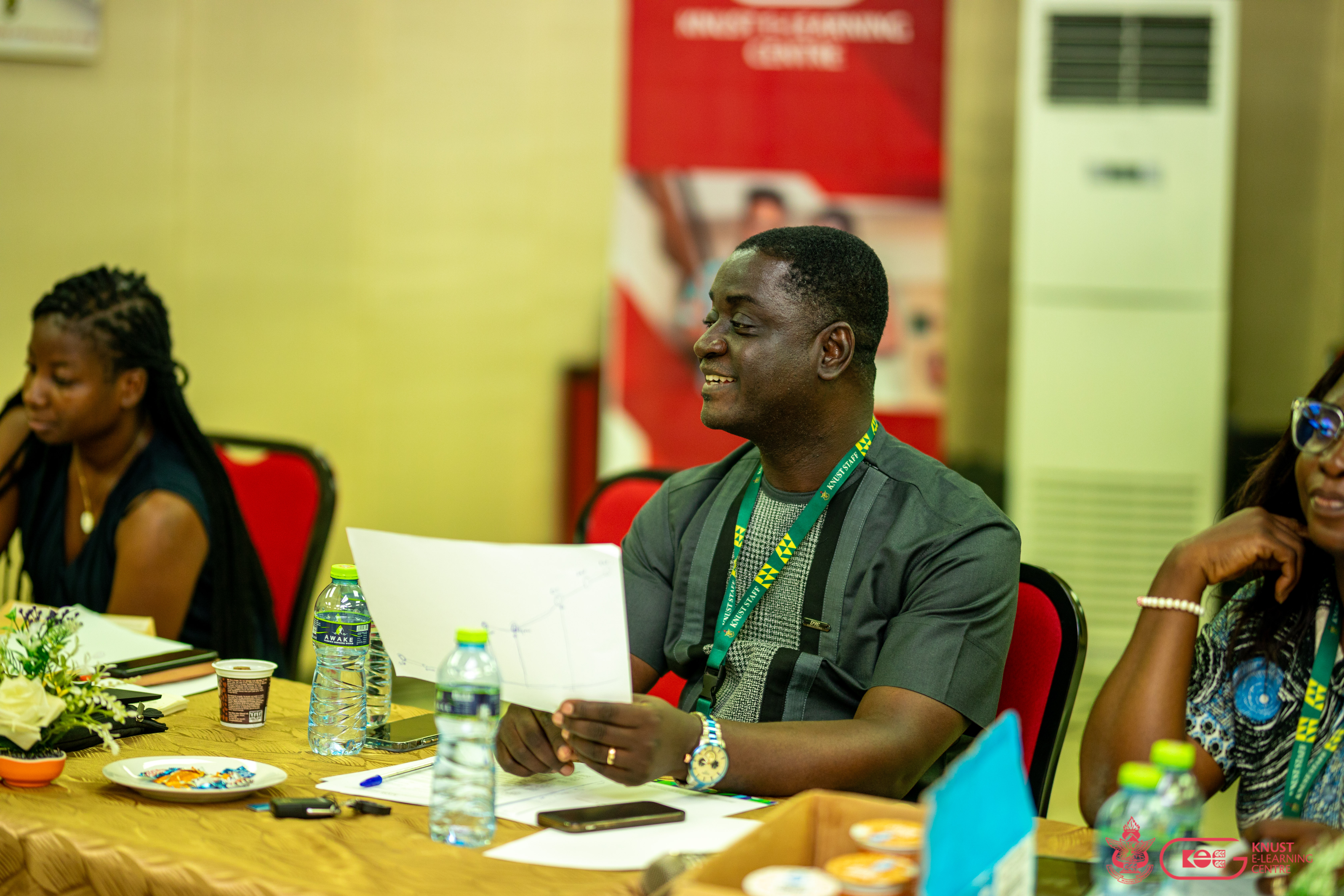
“We must ensure that every unit is prepared for the digital transformation by identifying gaps in skills and addressing them through training.” He also stressed the need for staff across various fields to familiarize themselves with instructional design and e-learning methodologies. “E-learning is not only about ICT. It is also about understanding the educational aspect. We need to move beyond technical expertise and focus on how to deliver effective online teaching and learning,” Professor Asante added.
He expressed optimism about scaling training programs in instructional design to support online teaching across different faculties. Hanna Schlingmann, Project Manager for the AFOS Foundation, spoke about the foundation’s collaboration with KNUST and its focus on integrating women into ICT-related careers.
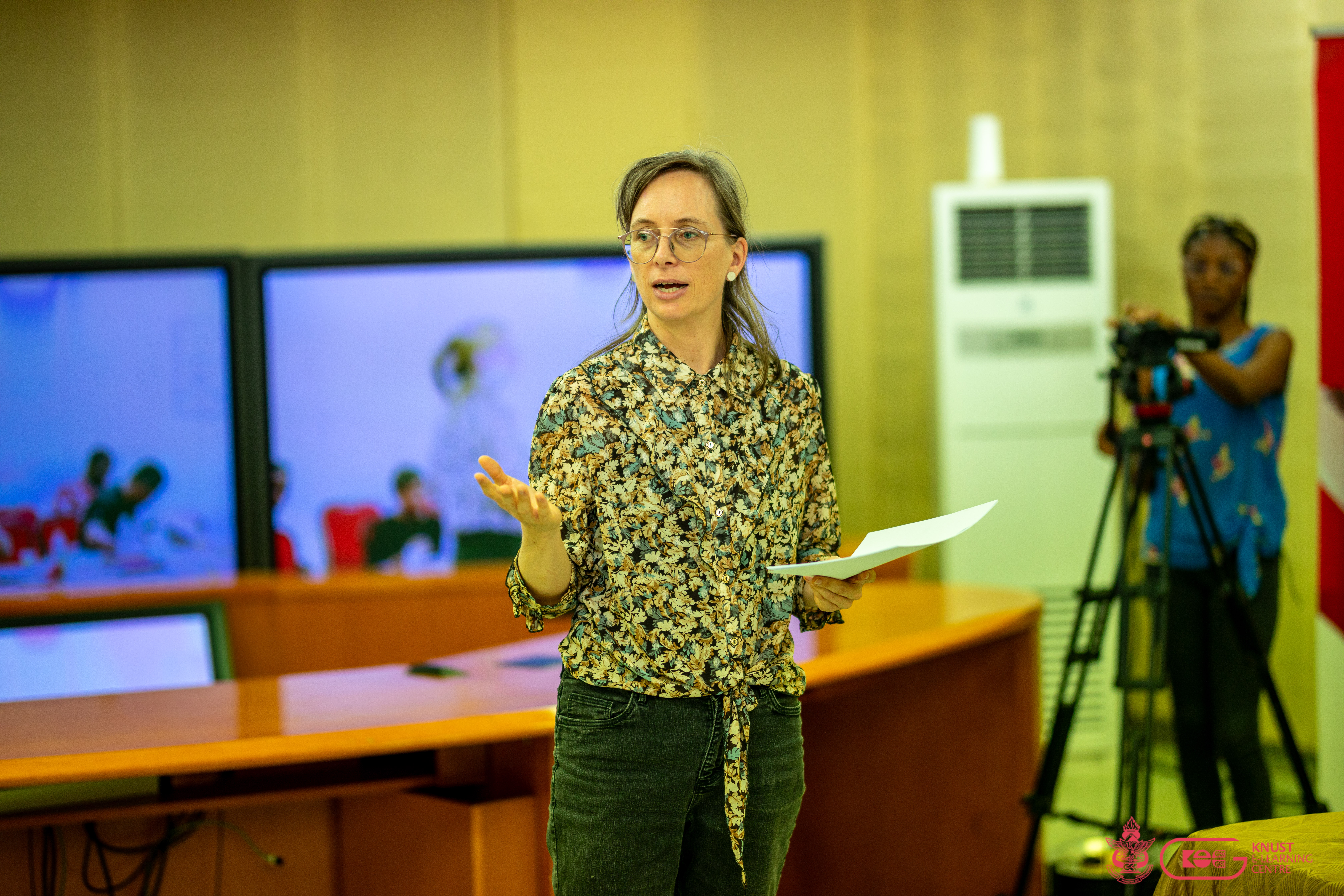
“Our goal is to provide students and graduates, particularly women, with the skills and tools needed for ICT-related jobs. Digitalization presents opportunities, and we are committed to making these opportunities accessible,” she said. Prince Boamong, Co-founder of the Oxford Africa Women in Leadership Institute, highlighted the importance of creating supportive environments for female entrepreneurs.
“Women-led businesses face unique challenges, but with access to digital tools and training, they can thrive. Collaboration with institutions like the KNUST E-Learning Centre is good for this process,” he noted. The event also included a presentation by Professor Ernest Winful, Head of the Centre for Entrepreneurship and Incubation Services at Accra Technical University. He praised KNUST’s efforts to maintain high standards in e-learning and emphasized the need to involve the youth in policy discussions. “Young people must be part of the conversation if we want policies to reflect their realities. Listening to them is important for progress,” he said.
Juliana Ametorwogo, Director for the Women’s Wing at the Institute of ICT Professionals Ghana, and Gifty Mottey, Director of Administration at the same institute, both mentioned the importance of creating an inclusive environment where women and girls can thrive in ICT and entrepreneurship.
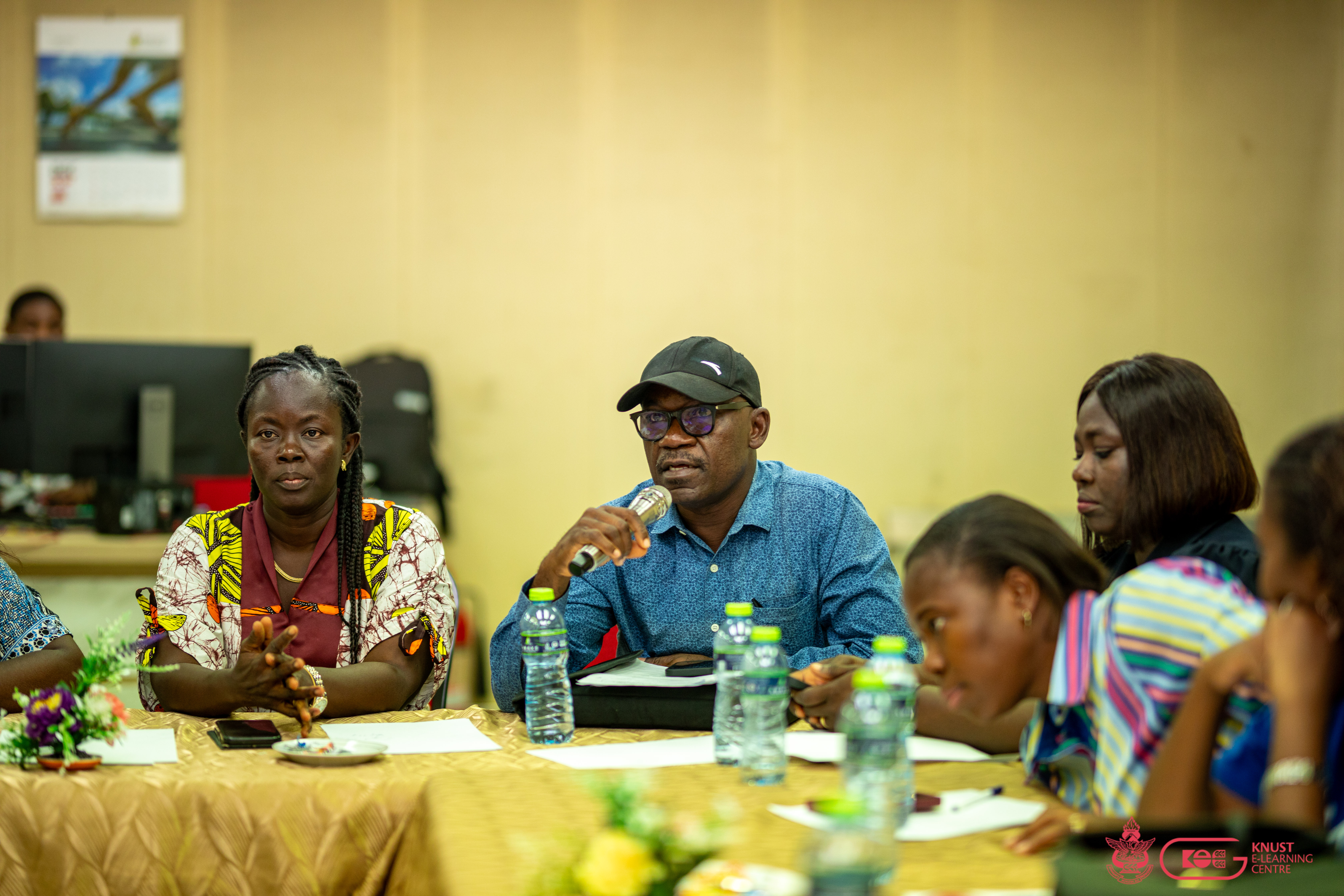
The stakeholders also discussed the need for mental health support and stress management training for staff involved in ICT and business development. Abigail Dzama Anderson, Senior Assistant Registrar at the KNUST E-Learning Centre, noted that teamwork and understanding the roles of various units are necessary for success. The team toured the KNUST E-Learning Centre, where they were introduced to the technologies and facilities available.
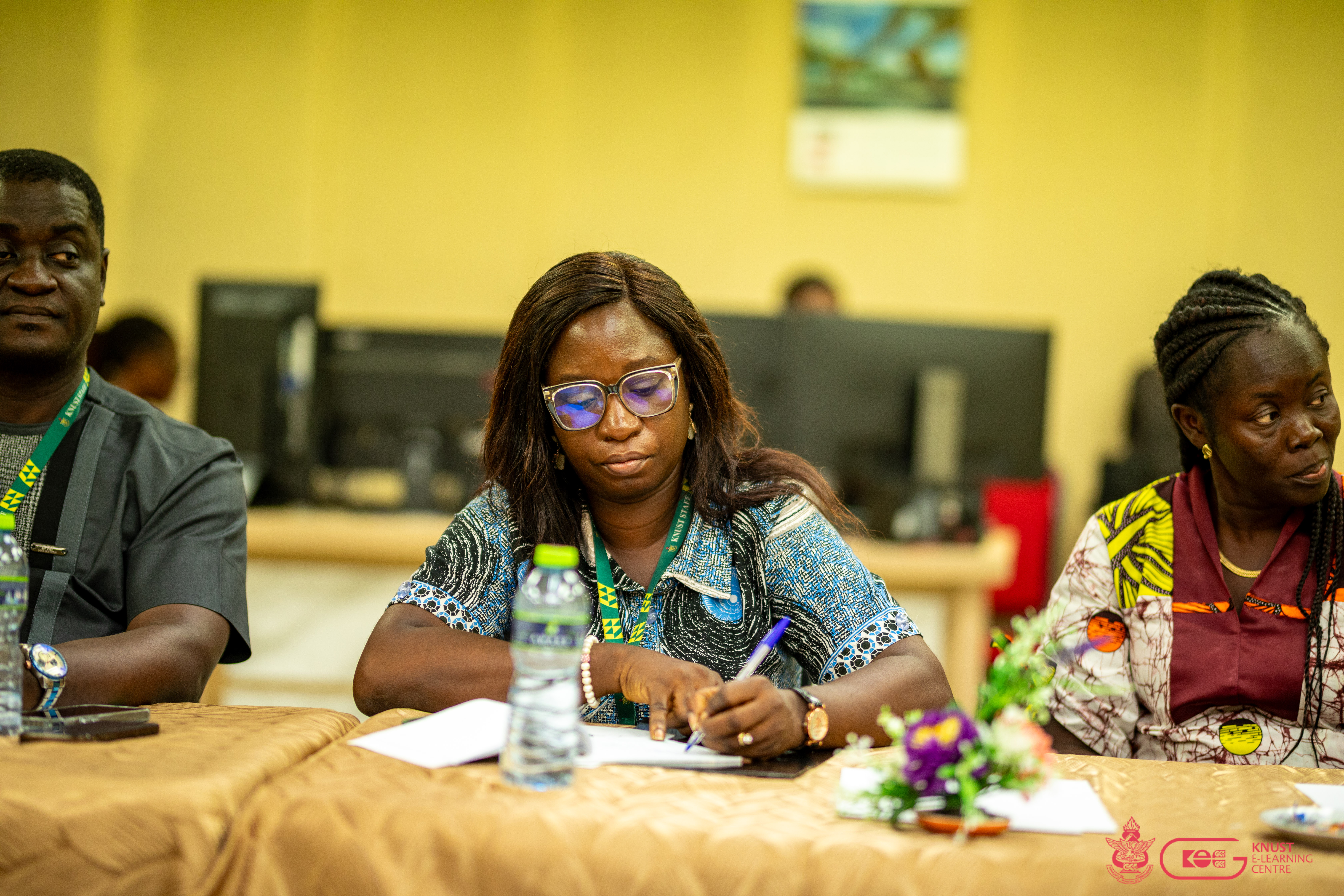
The tour showed the importance of investing in infrastructure and capacity building to support digital education and entrepreneurship. Selina Angmor, Head of Career Services at KNUST, expressed excitement about the opportunities the initiative presents. “We are looking forward to how these collaborations can address industry needs and support female-led businesses,” she said. Edward Amarteifio, Senior Lecturer and Project Lead for the Systems Change Program for Employability under the Education Collaborative, mentioned the value of partnerships and shared success stories of past collaborations, including work with Accra Technical University (ATU) and the University of Cape Coast (UCC).
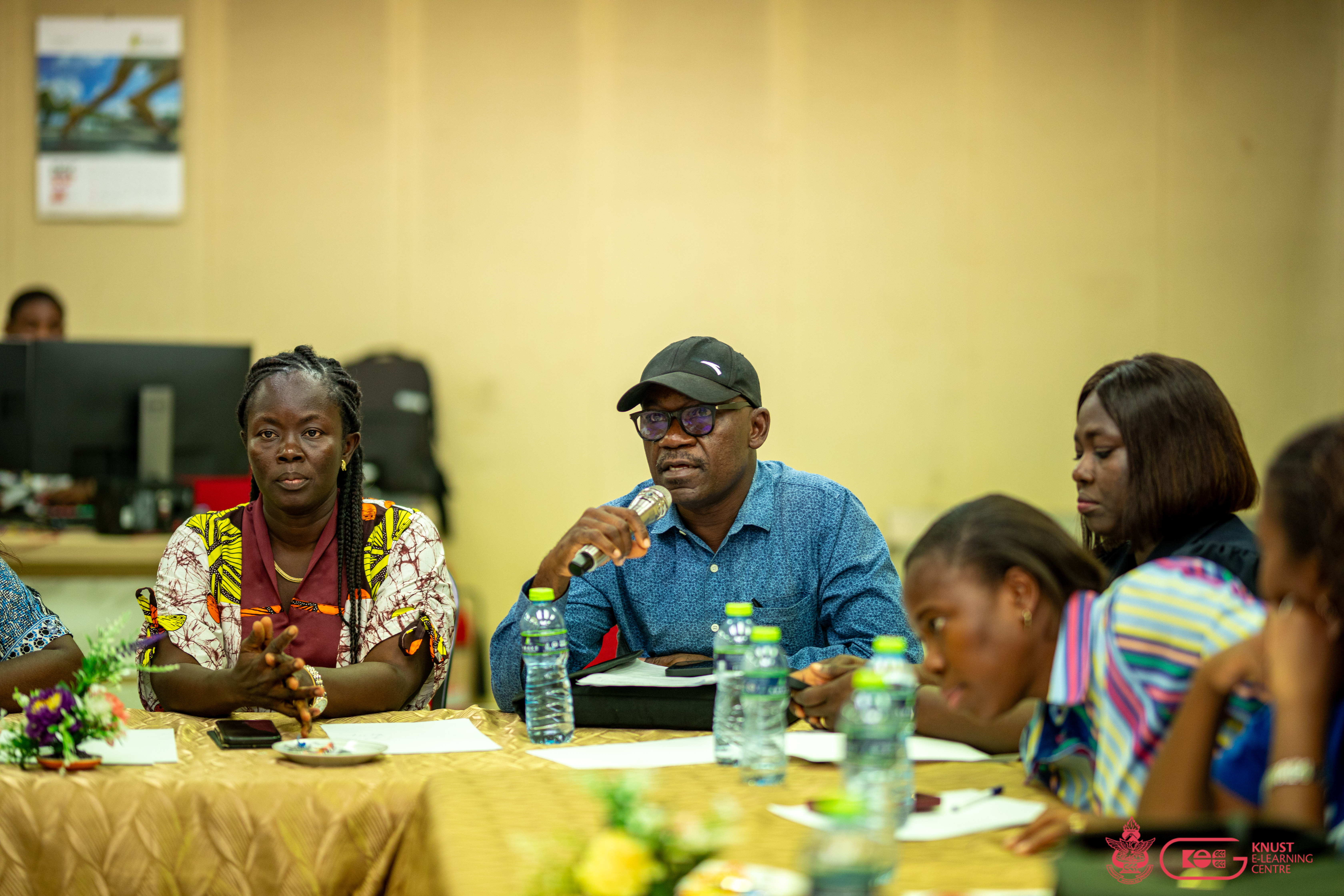
He expressed optimism about expanding the program's impact. Adwoa Fosua, CEO of Women’s Haven Africa, highlighted the need for career guidance centers in universities to support women after training programs. She emphasized the importance of long-term support systems, such as internships and mentorship opportunities, for trainees, especially when funding for such initiatives is limited.
She expressed her organization’s willingness to collaborate on future projects, offering their skills and resources to ensure success. Eunice Adjei, representing the We Rise Network under the Ghana Enterprises Agency, shared her perspective on fostering synergies for greater impact in empowering women. Douglas Boateng, a representative of Women’s Haven Africa, urged stakeholders to actively promote their initiatives to increase awareness and attract broader support.
He noted the importance of marketing and publicity to ensure that impactful projects receive the recognition they deserve. Hanna Schlingmann, reflected on the importance of building trust and leveraging existing systems to ensure sustainable development.
She praised the collaboration and expressed interest in understanding existing career services and initiatives at KNUST to build on them effectively. She looked forward to the operational planning workshop scheduled for January, where next steps would be outlined.
Moving forward, stakeholders plan to organize more training programs and workshops to address gaps in digital skills and entrepreneurship. They also aim to strengthen partnerships with local and international organizations to enhance the impact of the initiative.
Published: 4th January,2025 Source: KNUST E-Learning Centre
